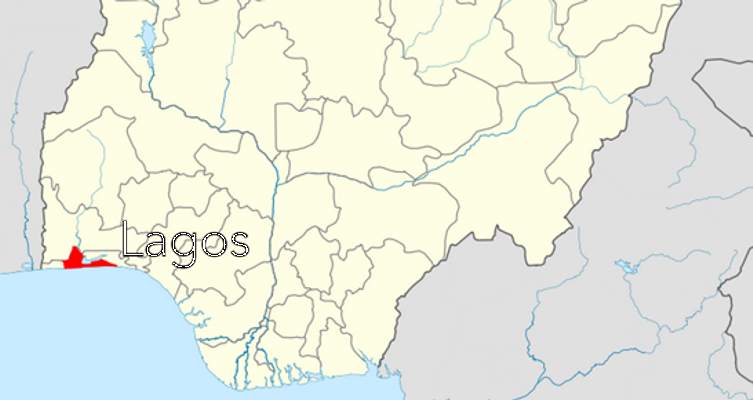Paragraph 1: The Incident and Initial Impact
On a fateful Sunday evening, the quietude of Ijora Badia, a suburb nestled within the bustling metropolis of Lagos, Nigeria, was shattered by a powerful gas explosion. The blast, which reverberated through the neighborhood around 5:00 p.m., originated from a mini shop within a bungalow complex. This complex, a common type of dwelling in densely populated areas, encompassed 15 self-contained rooms and seven other shops, increasing the potential for widespread damage and casualties. The explosion sent shockwaves through the community, causing widespread fear and panic among residents. The immediate aftermath was a scene of chaos and destruction, with debris scattered across the area and the pungent smell of gas permeating the air.
Paragraph 2: Cause and Extent of Damage
Preliminary investigations into the incident point to a leaking 25-kilogramme gas cylinder inside the ill-fated mini shop as the source of the explosion. While the exact sequence of events leading up to the ignition remains under investigation, it appears that the escaping gas, possibly due to improper handling or a faulty valve, encountered a nearby flame. This sparked the powerful explosion, which ripped through the shop and surrounding structures. The blast inflicted extensive damage to the bungalow complex and adjacent buildings. Miraculously, despite the intensity of the explosion and the densely populated nature of the area, no fatalities were recorded. This fortunate outcome can be attributed to a combination of factors, including the relatively contained nature of the explosion and the swift response of emergency services.
Paragraph 3: Emergency Response and Casualty Management
Following the explosion, emergency response teams rapidly converged on the scene, working tirelessly to bring the situation under control. The Lagos State Fire and Rescue Service, spearheaded by Director Margaret Adeseye, swiftly extinguished the ensuing fire, preventing further damage and potential secondary explosions. Simultaneously, firefighters meticulously removed all remaining gas cylinders from the affected area, mitigating the risk of additional blasts. Other agencies, including the Lagos State Emergency Management Agency (LASEMA), the Lagos Neighbourhood Safety Corps (LNSC), the Lagos State Ambulance Service (LASAMBUS), and the Nigeria Police Force, collaborated in the rescue and recovery efforts. This coordinated response ensured that injured individuals received immediate medical attention.
Paragraph 4: Medical Assessment and Treatment of Victims
A total of fifteen individuals, comprising both adults and children of both genders, sustained varying degrees of burn injuries as a result of the explosion. The severity of the injuries ranged from minor burns to more extensive burns requiring specialized medical care. Many of the victims received immediate first aid at the scene, where paramedics assessed their injuries and provided initial treatment. Those with more severe burns were promptly transported to nearby hospitals for comprehensive medical evaluation and further treatment. While the injuries were undoubtedly traumatic, none were deemed life-threatening, offering a glimmer of hope amid the devastation.
Paragraph 5: Official Statements and Ongoing Investigations
Director Margaret Adeseye of the Lagos State Fire and Rescue Service confirmed the details of the incident in an official statement, assuring the public that the fire had been completely extinguished and the area secured. She emphasized the collaborative nature of the emergency response, highlighting the crucial roles played by various agencies in managing the crisis. While the initial findings suggest a leaking gas cylinder as the primary cause, a thorough investigation into the circumstances surrounding the explosion is underway. This investigation will aim to determine the precise sequence of events, identify any contributing factors, and recommend measures to prevent similar incidents in the future.
Paragraph 6: Community Impact and Lessons Learned
The gas explosion in Ijora Badia serves as a stark reminder of the inherent risks associated with the handling and storage of highly flammable materials such as liquefied petroleum gas (LPG). The incident underscores the importance of adhering to safety regulations, ensuring proper maintenance of gas cylinders and appliances, and promoting public awareness of potential hazards. The community of Ijora Badia, still reeling from the shock of the explosion, faces the arduous task of rebuilding and recovering from the physical and emotional toll of the disaster. The incident serves as a valuable lesson, prompting renewed calls for stricter enforcement of safety standards and enhanced community education programs to prevent such tragedies from recurring in the future.














